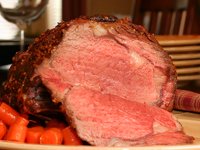A recent study on L-carnitine1 Robert A Koeth, Zeneng Wang, Bruce S Levison, et al. “Intestinal microbiota metabolism of l-carnitine, a nutrient in red meat, promotes atherosclerosis.” Nat Med 2013/04/07/online has some people worried about using supplements that contain Acetyl-l-carnitine. There is no reason to be concerned for a number of reasons.
First, this was a limited study ONLY involving 6 people. In fact, the primary data came from mice genetically engineered to have heart disease.
Second, Acetyl-l-carnitine is not L-carnitine. Although they are related, they are not the same substance; they are different molecules. They are broken down differently, used differently, and work in different areas of the body. Carnitine boosts energy by stimulating the body’s burning of triglycerides as fuel, and sparing the supply of glycogen stored in the liver for heavier exertion. For this reason, it is utilized by bodybuilders and people looking to lose weight. Acetyl-l-carnitine is not involved in fat metabolism at all—zero, nada. Instead, it works as a powerful antioxidant that crosses the blood-brain barrier (something L-carnitine cannot do) and thus helps prevent brain cell deterioration. Bottom line: there is absolutely no evidence that Acetyl-l-carnitine presents any problems in terms of TMAO and/or heart health.
Third, thanks to media scare headlines, the important findings of the study have been misinterpreted. The culprit in the study is not actually carnitine, but “certain” bacteria in the intestinal tract (but only of heavy meat eaters) that break down carnitine and release TMAO (trimethylamine N-oxide) into the intestinal tract, where it is then absorbed into the bloodstream. But, and here’s the point that got glossed over in the media, yes, there was a TMAO burst in the five meat eaters; but not in the vegan. The problem, then, if there is one at all, is not in the carnitine, but in the change in the intestinal bacteria resulting from regular high consumption of meat. If you’re not eating large amounts of meat, you don’t have large numbers of those bacteria, and you don’t convert carnitine to TMAO. To repeat: the researchers found that carnitine was not dangerous by itself; instead, the problem (again if there is one) arose when it was metabolized by bacteria in the intestines and ended up as TMAO in the blood. So, if you don’t eat a lot of meat, or if you regularly supplement with a good probiotic formula to keep your intestinal bacteria balanced, it’s a non-issue, even if the TMAO theory turns out to have any merit.
Fourth, the connection of TMAO to heart disease is only a theory—and a new one at that. Keep in mind that both the saturated fat and cholesterol theories of heart disease have been much more widely studied and yet have turned out to be much less predictive of actual heart disease than once thought.
Fifth, as Chris Kresser points out on his site, epidemiological data does not support the theory. In other words, if eating meat increases heart disease risk, then we would expect lower rates in vegans and vegetarians. And while it is true that early studies suggested this is the case, later, better-controlled studies suggest it’s not.2 Chris Kresser, “Red Meat and TMAO: Cause for Concern, or Another Red Herring?” Medicine for the 21st Century. 10 April 2013 (Accessed 15 April 2013.) http://chriskresser.com/red-meat-and-tmao-its-the-gut-not-the-meat As it turns out, the early studies were poorly designed and subject to confounding factors (i.e. vegetarians tend to be more health conscious on average than the general population, so there could be other factors explaining their longevity, such as more exercise, less smoking, etc.). Newer, higher quality studies that have attempted to control for these confounding factors haven’t found any survival advantage in vegetarians. For example, one study compared the mortality of people who shopped in health food stores (both vegetarians and omnivores) to people in the general population. They found that both vegetarians and omnivores in the health food store group lived longer than people in the general population.3 Key TJ, Thorogood M, Appleby PN, Burr ML. “Dietary habits and mortality in 11,000 vegetarians and health conscious people: results of a 17 year follow up.” BMJ. 1996 Sep 28;313(7060):775-9. http://www.ncbi.nlm.nih.gov/pubmed/8842068 This suggests, of course, that eating meat in the context of a healthy diet does not have the same effect as eating meat in the context of an unhealthy diet. In fact, a very large study performed in the U.K. in 2003 including over 65,000 subjects corroborated these results: no difference in mortality was observed between vegetarians and omnivores.4 Davey GK, Spencer EA, Appleby PN, et al. “EPIC-Oxford: lifestyle characteristics and nutrient intakes in a cohort of 33 883 meat-eaters and 31 546 non meat-eaters in the UK.” Public Health Nutr. 2003 May;6(3):259-69. http://www.ncbi.nlm.nih.gov/pubmed/12740075 (As I’ve pointed out on numerous occasions, the case against eating moderate amounts of organic, grass-fed meat is more about morality and ethics than about health.)
Sixth, this is only one study in a sea of studies on L-carnitine. In other studies, L-carnitine has actually shown the potential to prevent clogged arteries. Also, keep in mind that the mice used in the present study were genetically-modified to be susceptible to heart disease, so the results of the study may not even be transferable to humans.
And speaking of other studies, we come to our seventh, and most amusing, point. A study released four days AFTER the study we’ve been talking about concluded that L-carnitine significantly improves cardiac health in patients after a heart attack.5 James J. DiNicolantonio, Carl J. Lavie, Hassan Fares, Arthur R. Menezes and James H. O’Keefe. L-Carnitine in the Secondary Prevention of Cardiovascular Disease: Systematic Review and Meta-analysis. Mayo Clinic Proceedings, June 2013; Volume 88, Issue 6. http://www.alphagalileo.org/ViewItem.aspx?ItemId=130204&CultureCode=en No kidding! An even more recent study has found that L-carnitine is actually heart protective. Go figure! And as the new study’s authors pointed out, that while the TMAO carnitine study is of interest, the main study referenced was in animals, and unlike this more recent study, lacked hard outcomes.
Conclusion
The bottom line is that there is absolutely no reason to stop using supplements that contain Acetyl-l-carnitine.
References
| ↑1 | Robert A Koeth, Zeneng Wang, Bruce S Levison, et al. “Intestinal microbiota metabolism of l-carnitine, a nutrient in red meat, promotes atherosclerosis.” Nat Med 2013/04/07/online |
|---|---|
| ↑2 | Chris Kresser, “Red Meat and TMAO: Cause for Concern, or Another Red Herring?” Medicine for the 21st Century. 10 April 2013 (Accessed 15 April 2013.) http://chriskresser.com/red-meat-and-tmao-its-the-gut-not-the-meat |
| ↑3 | Key TJ, Thorogood M, Appleby PN, Burr ML. “Dietary habits and mortality in 11,000 vegetarians and health conscious people: results of a 17 year follow up.” BMJ. 1996 Sep 28;313(7060):775-9. http://www.ncbi.nlm.nih.gov/pubmed/8842068 |
| ↑4 | Davey GK, Spencer EA, Appleby PN, et al. “EPIC-Oxford: lifestyle characteristics and nutrient intakes in a cohort of 33 883 meat-eaters and 31 546 non meat-eaters in the UK.” Public Health Nutr. 2003 May;6(3):259-69. http://www.ncbi.nlm.nih.gov/pubmed/12740075 |
| ↑5 | James J. DiNicolantonio, Carl J. Lavie, Hassan Fares, Arthur R. Menezes and James H. O’Keefe. L-Carnitine in the Secondary Prevention of Cardiovascular Disease: Systematic Review and Meta-analysis. Mayo Clinic Proceedings, June 2013; Volume 88, Issue 6. http://www.alphagalileo.org/ViewItem.aspx?ItemId=130204&CultureCode=en |












Thanks for making the issue
Thanks for making the issue more clear.
My HEARTy THANKS so much for
My HEARTY THANKS so much for your clarification! A very enlightening article!
That you for the comments On
That you for the comments On the product Acetyl-I-Carnitine most interesting . I was a bit concerned as I started taking it as it had on Bottle Memory and Brain Function. And as I have a husband that has Alzheimer’s Disease I was worried and hope I will not get the same.
Bravo for spelling out the
Bravo for spelling out the several faults with the study!
I understand that eating fish
I understand that eating fish creates an even more likely scenario for increasing TMAOs then with beef. So is the potential for increased arterial inflammation from carnitine in any type of meat? I see even carrots have naturally occurring TMAOs. So is the answer then to avoid salmon, beef and carrots? It seems that the cause and effect is not clear. What is the real relationship between carnitine and TMAOs that contribute to heart disease?????
As Jon said, the TMAO theory
As Jon said, the TMAO theory of heart disease is only a “theory” and should be viewed with more than a grain of salt at this time. You are correct, as even the study researchers themselves pointed out, some forms of fish have very high levels NOT of carnitine but of TMAO itself — particularly deep sea fish in Arctic waters, which use TMAO as anti-freeze and have extraordinarily high TMAO levels. Surface fish, like trout, “tend to have very low TMAO,” they noted. And yes, a 1999 study that evaluated TMAO excretion following consumption of different foods showed that red meat generated no more TMAO than fruits and vegetables. Peas, cauliflower and carrots, generated more TMAO than beef. And lamb generates way, way more TMAO than beef.
So yes, the study is deeply flawed.
Note: the one thing that regular meat consumption does do is significantly alter the composition of your intestinal bacteria over time. With that in mind, you might want to consider supplementation with a good probiotics to help shift that composition back…for many health reasons.
I just bought a bottle and
I just bought a bottle and saw the article about heart disease.
Thanks for the article. I feel better now.
Huh? In this aricle, Jon
Huh? In this aricle, Jon states, ” Acetyl-l-carnitine is not involved in fat metabolism at all—zero, nada”.
However, in the “End of Old Age” article, he has previously stated, “a specialized form of L-carnitine known as acetyl-L-carnitine (ALC) that is often deficient even in meat eaters and that performs virtually all of the same functions – but better. For example, in terms of cellular energy production, in addition to shuttling fatty acids into cell mitochondria….”
So how is shuttling fatty acids into cell mitochondira NOT being involved with fat metabolism at all?
Although, closely related,
Although, closely related, carnosine and acetyl-l-carnitine (ALCAR) are different molecules. ALCAR is an acetylated form of carnitine. As such they have related but also different properties.
ALCAR is actually one of several forms of carnitine at work in your body. Carnitines do not actually metabolize fats. Rather, carnitines “transport” certain fatty acids to mitochondria within cells; it is the mitochondria that metabolize the fat and burn it as fuel. This is not splitting hairs. Swallowing your food, for example, “transports” food into your stomach, but it has nothing to do with metabolizing it. Swallowing merely puts the food in position to be metabolized. If you have no stomach acid or digestive enzymes, no metabolism takes place no matter how much you swallow and transport the food into your stomach. Transport is important to the metabolism of fats, but it is not involved in the actual metabolism itself. Hope that clarifies the issue.
The advantage of ALCAR over carnosine, at least in terms of brain aging as Jon references in his articles, is that it can cross the blood brain barrier.(1) L-carnosine cannot do that.
Hope that helps.
I’m sorry. Perhaps I was not
I’m sorry. Perhaps I was not clear, but it appears you are confusing the issue. I am not asking about the difference between Acetyl-L-carnitine vs. carnosine. I am asking about the difference between l-carnitine and acetyl-l-carnitine.
In this article, Jon appears to draw one distinction between the two:
“Carnitine boosts energy by stimulating the body’s burning of triglycerides as fuel, and sparing the supply of glycogen stored in the liver for heavier exertion…. Acetyl-l-carnitine is not involved in fat metabolism at all—zero, nada.”
By “Carnitine” in the first statement, it sounds like he means l-carnitine as the “L” prefix is often dropped when speaking of certain substances. Did he in fact mean both forms l-carnitine and acetyl-l-carnitine stimulate the burning of triglycerides?
Or do both forms transport fatty acides to the mitochondria, but only l-carnitine stimulates the burning of those fatty acids?
Partially my concern is that in reading Jon in the past, my impression has been that ALC does everything l-carnitine does PLUS it has additional advantages (such as crossing the blood brain barrier).
Now I am confused into thinking maybe it does not provide the same cellualr energy benefits regarding utilization of fatty acides.
We were not talking about
We were not talking about carnosine but about carnitine and acetyl-l-carnitine.
Let’s try and express this differently. Acetyl-l-carnitine does everything that carnitine does, but it can cross the blood brain barrier and work in the nervous system. What this means in terms of fat metabolism is that anything going to the nervous system will not be involved in body cells outside the nervous system. That means if you take L-carnitine, virtually all of it will be involved in improving your body’s ability to burn fat by transporting the fat into your body’s muscle tissue, for example. If you take acetyl-l-carnitine, on the other hand, very little of it will be used for producing energy in the body, as most of it will be used for improving brain function. Any that does not enter the nervous system, however, is fully equivalent to L-carnitine in effectiveness. Under normal doses, the amount of Acetyl-l-carnitine that is involved in fat metabolism is pretty close to nada. At higher doses, more is available for fat metabolism, so nada would no longer apply. In that sense, it is dose dependent.
Thanks. I suspected you did
Thanks. I suspected you did not mean carnosine, but you used the word three separate times in your previous response, so I was just making sure. This clarification is excellent and crystal clear.
Thanks, again.
I have to disagree with your
I have to disagree with your claim about vegetarianism and heart disease. You cite a 2003 paper from the EPIC-Oxford study as evidence, but that study didn’t actually look at disease outcomes. This one, published this year, did: www dot ncbi.nlm.nih.gov/pubmed/23364007. It found an approx. 30% lower ischemic heart disease rate among vegetarians after controlling for the usual confounding factors and lifestyle differences:
RESULTS:
After an average follow-up of 11.6 y, there were 1235 IHD cases (1066 hospital admissions and 169 deaths). Compared with nonvegetarians, vegetarians had a lower mean BMI [in kg/m(2); -1.2 (95% CI: -1.3, -1.1)], non-HDL-cholesterol concentration [-0.45 (95% CI: -0.60, -0.30) mmol/L], and systolic blood pressure [-3.3 (95% CI: -5.9, -0.7) mm Hg]. Vegetarians had a 32% lower risk (HR: 0.68; 95% CI: 0.58, 0.81) of IHD than did nonvegetarians, which was only slightly attenuated after adjustment for BMI and did not differ materially by sex, age, BMI, smoking, or the presence of IHD risk factors.
According to the summary of the study (complete paper is behind a paywall) at www dot veganhealth.org/articles/dxrates#epic_heartdx_2013, other factors like physical activity also were controlled for. The folks at veganhealth.org do an excellent job of keeping up-to-date with the research on veg’ism and health.
Actually, you left some
Actually, you left some important information out of your comments on the EPIC study. According to the study, a purely vegetarian diet is NOT necessarily better than a plant-based diet that also includes fish or poultry. For example, in a pooled analysis of data from the Oxford Vegetarian Study and EPIC-Oxford, fish-eaters had a lower risk of certain cancers than vegetarians.
That said, the major problem with the study you cite is that it lumped all meat eaters in together. No allowance was made for whether or not the meat was organic or pumped with synthetic hormones, whether it was grass fed, which has a good mix of omega-6 to omega-3 fatty acids, or corn fattened, which is wildly skewed to the omega-6’s. That kind of imbalance leads to an accumulation of NEFAs in the blood, which are known to cause heart attacks. High NEFAs alone could account for the increased risk of heart attacks.
True, but by the same token
True, but by the same token the study didn’t subdivide vegetarians and vegans into those with the most wholesome diets and those who may be subsisting on crackers and jam. Similarly, a serious limitation of all the prospective studies of vegans and vegetarians (as far as I know) is a failure to distinguish subjects with adequate B12 status from those without (a lot of vegans, based on other studies, because too many don’t accept the need to supplement if they’re not eating lots of B12-fortified foods).
When you say I left out information, all I went by was the abstract which made no reference to “a purely vegetarian diet is NOT necessarily better than a plant-based diet that also includes fish or poultry.” So you’re saying the study found no significant difference between these two groups?
About the “pooled analysis of data from the Oxford Vegetarian Study and EPIC-Oxford” which you say found that “fish-eaters had a lower risk of certain cancers than vegetarians,” do you have a cite? Was there significantly less cancer overall in the fish-eating group?
Syd
Actually, there are several
Actually, there are several studies that point in the same direction regarding fish. Here’s one where you’re not restricted to just the summary. http://cebp.aacrjournals.org/content/17/5/1136.long
Again, this is not to say that eating fish is better than eating vegetarian. It’s merely to point out, once again, that the issue is more complex than simply vegetarian over meat or fish. There are many factors that affect the results of the study beyond a gross description of what is eaten—things like how the food is grown or raised and how or if it’s cooked. And even then, there are subsets of food groups. Not all vegetarian diets are equal. Is a high grain and starch vegetarian diet (think breads, rice, potatoes, and casseroles) better than a diet based on fresh organic vegetables and salads but also 3 oz of grass fed organic beef a day?
“Is a high grain and starch
“Is a high grain and starch vegetarian diet (think breads, rice, potatoes, and casseroles) better than a diet based on fresh organic vegetables and salads but also 3 oz of grass fed organic beef a day?”
I don’t know. We need research to try and answer such questions. If the grains and starches are whole and, perhaps, organic, and if the rest of the diet is rich in other whole vegan foods (legumes, nuts, seeds instead of grass-fed organic beef as protein staples) as well as the same healthy spectrum of fresh organic produce and (last but not least) ensuring that special foods or supplements are used to ensure optimum intake of short and long-chain omega 3s, B12 and a few other nutrients that can easily be low on a veg diet, I suspect there would be a contest.
Regardless, I only commented to ensure the science on veg diets is accurately presented – for example, veg health benefits compared to nonveg diets do tend to remain after controlling for confounding variables. But as you’ve suggested, pesco-vegetarian diets have often come out on top (chicken, I’m not so sure – have not seen any studies). Although I’m a vegan, my motivation is ethical. Other benefits, including health, shouldn’t require a 100% vegan diet, but a near-vegan diet, quite possibly.
Then you and Jon are in
Then you and Jon are in agreement. Eating small amounts of “untainted” meat, fish, or poultry is primarily not a health issue—it’s an ethical issue.
I would like to bring this to
I would like to bring this to your attention;
Ann N Y Acad Sci. 2004 Nov;1033:30-41.
Kinetics, pharmacokinetics, and regulation of L-carnitine and acetyl-L-carnitine metabolism.
Rebouche CJ.
Author information
Abstract
In mammals, the carnitine pool consists of nonesterified L-carnitine and many acylcarnitine esters. Of these esters, acetyl-L-carnitine is quantitatively and functionally the most significant. Carnitine homeostasis is maintained by absorption from diet, a modest rate of synthesis, and efficient renal reabsorption. Dietary L-carnitine is absorbed by active and passive transfer across enterocyte membranes. Bioavailability of dietary L-carnitine is 54-87% and is dependent on the amount of L-carnitine in the meal. Absorption of L-carnitine dietary supplements (0.5-6 g) is primarily passive; bioavailability is 14-18% of dose. Unabsorbed L-carnitine is mostly degraded by microorganisms in the large intestine. Circulating L-carnitine is distributed to two kinetically defined compartments: one large and slow-turnover (presumably muscle), and another relatively small and rapid-turnover (presumably liver, kidney, and other tissues). At normal dietary L-carnitine intake, whole-body turnover time in humans is 38-119 h. In vitro experiments suggest that acetyl-L-carnitine is partially hydrolyzed in enterocytes during absorption. In vivo, circulating acetyl-L-carnitine concentration was increased 43% after oral acetyl-L-carnitine supplements of 2 g/day, indicating that acetyl-L-carnitine is absorbed at least partially without hydrolysis. After single-dose intravenous administration (0.5 g), acetyl-L-carnitine is rapidly, but not completely hydrolyzed, and acetyl-L-carnitine and L-carnitine concentrations return to baseline within 12 h. At normal circulating l-carnitine concentrations, renal l-carnitine reabsorption is highly efficient (90-99% of filtered load; clearance, 1-3 mL/min), but displays saturation kinetics. Thus, as circulating L-carnitine concentration increases (as after high-dose intravenous or oral administration of L-carnitine), efficiency of reabsorption decreases and clearance increases, resulting in rapid decline of circulating L-carnitine concentration to baseline. Elimination kinetics for acetyl-L-carnitine are similar to those for L-carnitine. There is evidence for renal tubular secretion of both L-carnitine and acetyl-L-carnitine. Future research should address the correlation of supplement dosage, changes and maintenance of tissue L-carnitine and acetyl-L-carnitine concentrations, and metabolic and functional changes and outcomes.
PMID:
15591001
[PubMed – indexed for MEDLINE]
Which is why Jon Barron
Which is why Jon Barron recommends that when taking acetyl-l-carnitine as a supplement, you split your daily dose up into three servings—to maintain optimized blood levels throughout the day, while at the same time minimizing hydrolysis.
Hello,
Hello,
Is there any evidence that supplementing with carnitine, even in vegans, in the long run may increase the gut bacteria that produces TMAO? Perhaps carnitine itself is partially responsible for the difference in GI bacteria between vegans and meat-eaters?
Thanks,
Sam
There is no evidence that
There is no evidence that carnitine changes the bacteria—only that the gut bacteria in heavy meat eaters changes the carnitine. As it says in the article.
“The culprit in the study is not actually carnitine, but “certain” bacteria in the intestinal tract (but only of heavy meat eaters) that break down carnitine and release TMAO (trimethylamine N-oxide) into the intestinal tract, where it is then absorbed into the bloodstream. But, and here’s the point that got glossed over in the media, yes, there was a TMAO burst in the five meat eaters; but not in the vegan. The problem, then, if there is one at all, is not in the carnitine, but in the change in the intestinal bacteria resulting from regular high consumption of meat.”